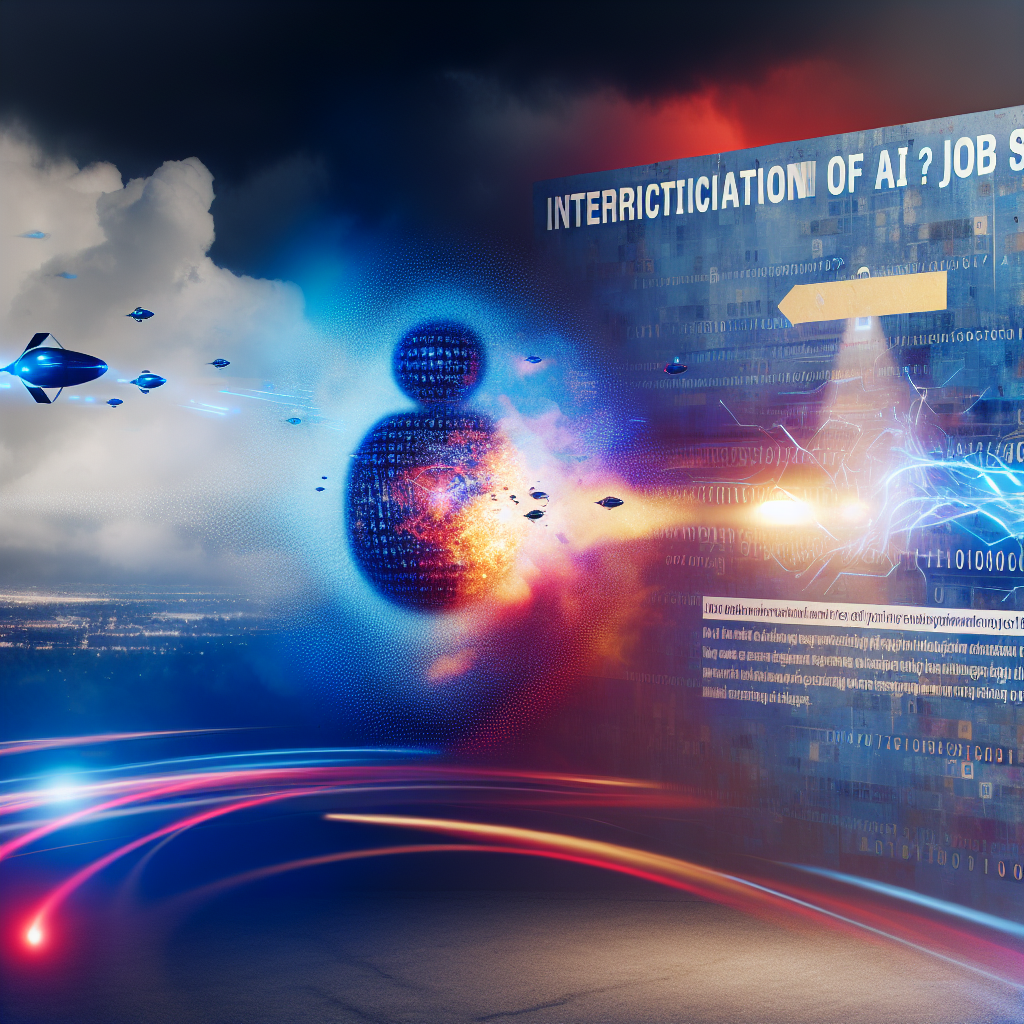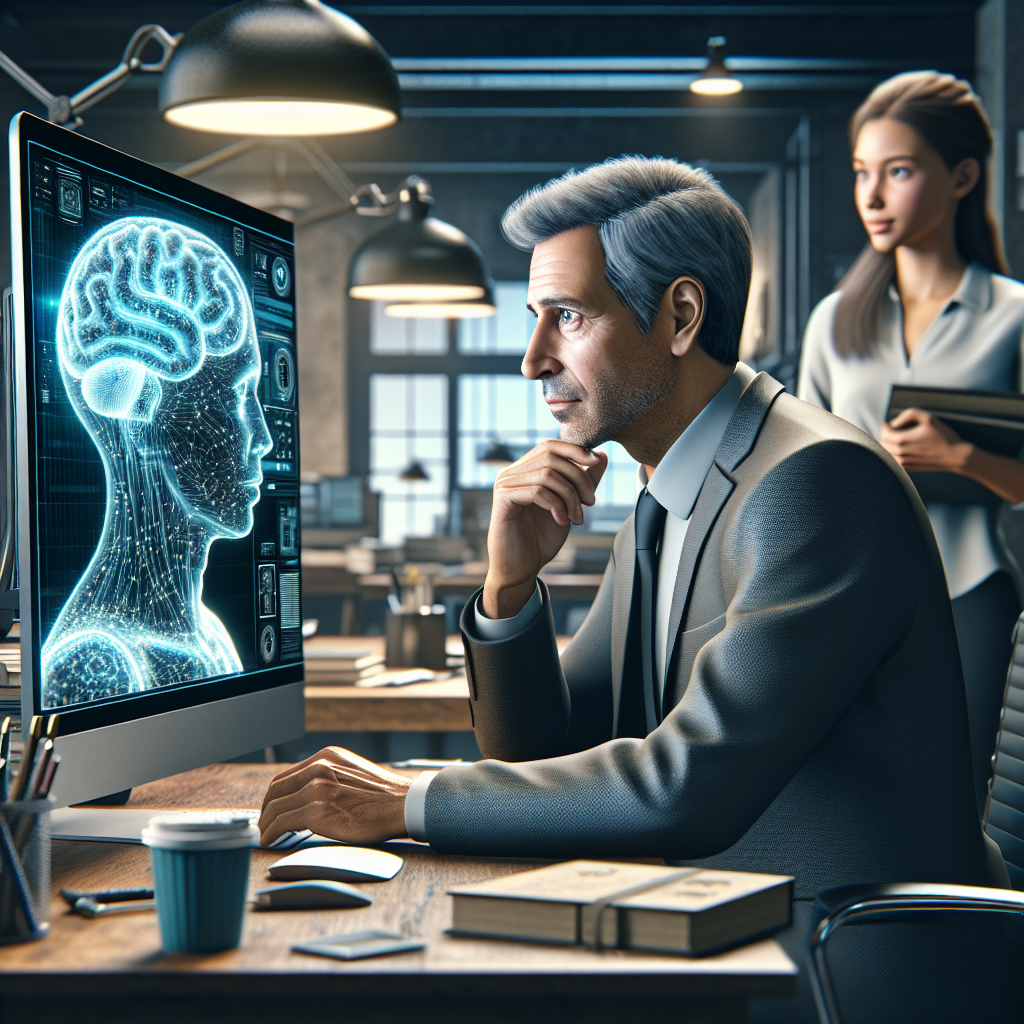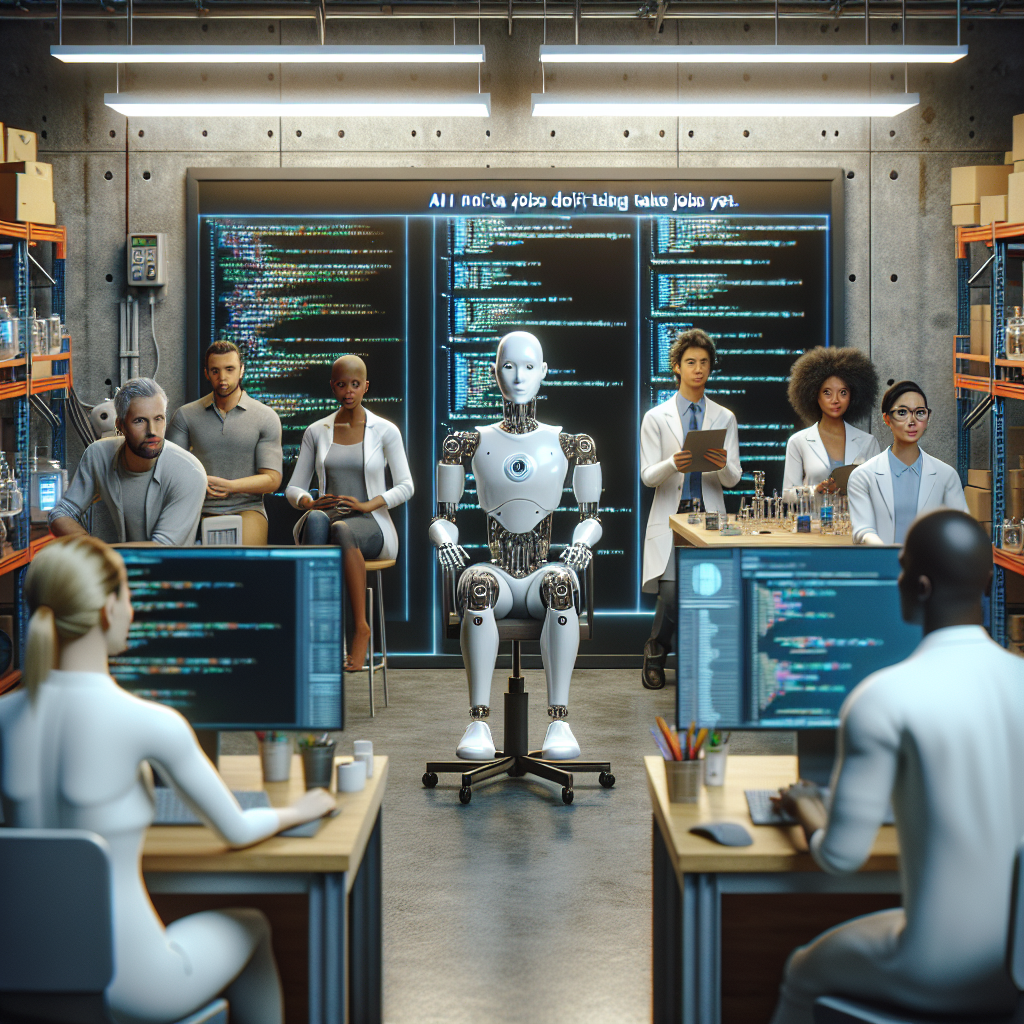The AI Job Impact: Stop Reacting, Start Dominating 2025
Forget the fear-mongering. Artificial intelligence isn’t coming for your job; it’s demanding your evolution. The AI job impact isn’t about elimination; it’s about a fundamental transformation of work itself. We’re not just seeing shifts; we’re witnessing a complete redefinition of value creation. As we hurtle towards 2025, understanding this new reality isn’t optional—it’s your strategic imperative. This isn’t just an article; it’s your roadmap to thriving, not just surviving, in the AI-powered future.
AI Isn’t Just Reshaping – It’s Redefining Your Role.
The integration of AI into every facet of the workplace is accelerating at an unprecedented pace. From automating mundane tasks to powering advanced analytics, AI is the new operational baseline. This isn’t just about efficiency; it’s about unlocking new frontiers of possibility and demanding a higher level of human contribution.
The Brutal Truth: Automation and the Elimination of Mediocrity.
The most immediate and undeniable aspect of the AI job impact is the automation of routine, predictable tasks. If your work involves repetition, it’s a prime target for AI. Think about it:
- Data entry and processing
- Inventory management
- Basic customer service queries
- Payroll and administrative tasks
Companies aren’t automating for fun; they’re doing it for reduced costs and increased productivity. This means traditional, repetitive roles are not just shrinking—they’re becoming obsolete. This is not a threat; it’s a clear signal: Elevate your game or get left behind.
Beyond Automation: AI as Your Creative Superpower.
This isn’t just about what AI can replace; it’s about what AI can amplify. Many professionals aren’t losing their jobs; they’re getting AI-powered upgrades. Consider these real-world examples:
- Marketers leveraging AI for hyper-targeted campaigns and deep audience insights.
- Doctors using AI for rapid diagnostic support and personalized treatment plans, saving lives with greater precision.
- Financial analysts deploying AI to model market trends with unparalleled accuracy, turning data into actionable wealth.
The AI job impact here is clear: It enhances human capabilities. It frees you from the mundane to focus on strategy, creativity, and complex problem-solving. This is the new human-machine partnership—where the machines handle the heavy lifting, and you provide the genius.
Vulnerability vs. Vitality: Where Do You Stand in the AI Revolution?
Don’t be naive. Not all jobs are created equal in the face of AI. Understanding where the risk lies—and where true human value resides—is paramount for strategic career planning.
The High-Risk Zone: If It’s Predictable, It’s Replaceable.
Jobs defined by routine, structured processes are on the chopping block. A stark reminder from the McKinsey Global Institute’s 2023 report highlights:
- Manufacturing and assembly line roles
- Telemarketing positions
- Dedicated data entry clerks
- Basic, script-based customer service representatives
These roles are set for significant, rapid automation. This is not a forecast; it’s a reality already in motion. Don’t cling to the past; prepare for the future.
AI-Proof Your Career: The Irreplaceable Human Advantage.
While some roles face extinction, others become indispensable. Why? Because they demand uniquely human attributes—skills AI simply cannot replicate:
- Educators and trainers: The art of human connection and mentorship.
- Healthcare providers: Empathy, complex patient care, and ethical decision-making.
- Creative professionals: Originality, abstract thought, and emotional resonance.
- Managers and strategists: Leadership, nuanced communication, and vision.
These are the fields where AI acts as a powerful tool, not a replacement. Your unique human value is your ultimate competitive advantage.
Don’t Just Survive, Thrive: The New Frontiers AI Creates.
The narrative often focuses on job losses. That’s a limited view. AI isn’t just displacing; it’s creating entirely new categories of work, fueling economic growth for those positioned to seize it.
The Architects of the AI Era: New Roles, New Power.
As AI expands, so does the demand for humans to build, manage, and ethically guide it. These are the jobs of the future, today:
- AI trainers and explainers: Guiding machine learning, ensuring ethical outputs.
- Data scientists: Interpreting massive datasets, driving strategic decisions.
- Cybersecurity specialists: Protecting the increasingly complex AI infrastructure.
- AI ethicists: Addressing bias, ensuring fairness, and navigating the moral landscape of AI.
These roles aren’t just jobs; they are pivotal positions demanding human intelligence, foresight, and oversight in a world powered by machines.
Your Ultimate Investment: Mastering Skills for an AI World.
To navigate and dominate the AI job impact, you need to invest in yourself. This isn’t just about learning new software; it’s about fundamentally upgrading your capabilities:
- Technical Mastery: Dive into coding, data analysis, and AI tool proficiency.
- Soft Skills Elevation: Sharpen critical thinking, complex problem-solving, emotional intelligence, and communication—the truly irreplaceable skills.
- Lifelong Learning: Embrace adaptability. The tools will evolve; your commitment to learning must outpace them.
This isn’t an option; it’s a mandate. Your relevance in the future economy hinges on your willingness to learn, unlearn, and relearn.
Real World, Real Wins: AI in Action Across Industries.
To truly grasp the AI shift, look at how it’s transforming established sectors. These aren’t theories; they are active transformations.
Healthcare: Precision & Purpose.
AI is revolutionizing healthcare, from diagnostic imaging and predictive analytics to personalized treatment plans. The outcome:
- Significantly improved patient outcomes through early detection and tailored care.
- Reduced administrative burden, freeing practitioners to focus on patients.
- Creation of new interdisciplinary roles blending medical expertise with AI insights.
Human compassion and complex ethical decision-making, however, remain firmly in human hands. AI augments, it doesn’t replace the doctor-patient bond.
Finance: Agility & Analytics.
In finance, AI algorithms are dominating trading, fraud detection, and risk assessment. While some traditional banking roles are automating, new opportunities are exploding:
- AI model management specialists.
- Financial technology (FinTech) innovators.
- Regulatory compliance experts for AI-driven systems.
The finance sector perfectly illustrates the dual AI job impact: efficiency through displacement balanced by immense potential for new, high-value creation.
The Ultimate Question: Will AI Steal Your Job? (The Chris Do Answer).
Let’s cut through the noise and address the core fear directly. The notion of AI “stealing” jobs often stems from a fundamental misunderstanding of its role.
The Data Doesn’t Lie: Displacement vs. Creation.
Economic projections indicate a clear trend: AI will displace approximately 15% of jobs, primarily routine activities. But here’s the crucial part: it’s projected to create up to 20% new roles directly linked to emerging technologies. The net effect is positive, but only for those who adapt.
This positive outcome is contingent on strategic policy, robust education systems, and individuals taking ownership of their skills transition. Opportunity doesn’t just appear; it’s built.
Your Playbook for Dominating the AI Age.
Don’t be a victim of change; become its master. Here’s your strategic imperative to mitigate risk and seize opportunity:
- Embrace Technology: Stop resisting. Learn it, leverage it, integrate it.
- Continuous Upskilling: Your skillset is your greatest asset. Keep upgrading it, always aligning with AI trends.
- Innovate & Create: Harness AI’s power to build new products, services, and solutions. Entrepreneurship isn’t just for founders; it’s a mindset for everyone.
As Klaus Schwab, founder of the World Economic Forum, aptly put it: “The Fourth Industrial Revolution can lift humanity into a new collective and moral consciousness based on a shared sense of destiny.” Your destiny is in your hands.
Your Non-Negotiable Action Plan for 2025 and Beyond.
Facing the AI revolution isn’t about speculation; it’s about strategic action. This is what you need to do, now.
For the Individual: Become Indispensable.
Your career is your responsibility. Take control:
- Identify Complementary Skills: Focus on creativity, emotional intelligence, leadership, and complex problem-solving—skills that AI enhances, not replaces.
- Pursue AI Certifications: Get certified in AI tools, data literacy, and machine learning fundamentals. Prove your proficiency.
- Strategic Networking: Connect with leaders and innovators in AI-integrated sectors. Build relationships that open doors.
- Stay Ahead of the Curve: Read, listen, learn. Understand how AI is specifically impacting your industry and niche.
For Businesses: Lead the Transformation, Don’t Be Led.
Your organization’s future hinges on proactive adaptation:
- Invest in Workforce Training: Upskill your employees with AI literacy and specific technical skills. Make learning a core company value.
- Foster a Culture of Innovation: Encourage experimentation, digital literacy, and continuous adaptation. Reward those who embrace change.
- Redesign Roles Strategically: Evaluate existing job functions for automation potential. Proactively redesign roles to leverage human-AI collaboration.
- Build Ethical AI Frameworks: Develop clear guidelines for responsible AI use, ensuring fairness, transparency, and accountability.
True success comes from balancing the unparalleled efficiency of machines with the irreplaceable ingenuity of human talent.
The Unwritten Future: Charting Your Course with AI.
The AI job impact is not a static event; it’s an unfolding story. Future trends will only deepen this dynamic:
- AI-driven gig and remote work will expand, democratizing access to global opportunities.
- Human-AI collaborations will become seamless, unlocking unprecedented levels of creativity and decision-making.
- The emphasis on AI ethics, transparency, and social responsibility will grow, demanding thoughtful human oversight.
Your ability to stay adaptable, relentlessly curious, and deeply engaged with these shifts will define your success. Don’t wait for permission; build your future now.
For even deeper insights into AI’s transformation of careers and the strategies to prepare, consult authoritative resources like the World Economic Forum’s Future of Jobs Report.
The dynamic between human workers and machines is rapidly shifting from competitive to collaborative. Understanding and embracing the AI job impact in 2025 isn’t just about survival; it’s about positioning yourself to lead the charge into the new era of work. Master this, and you master your future.
Ready to future-proof your career or business amidst these monumental AI transformations? Don’t delay. Visit our site today to discover personalized strategies and expert guidance tailored to mastering the evolving job landscape. Your future starts now.



